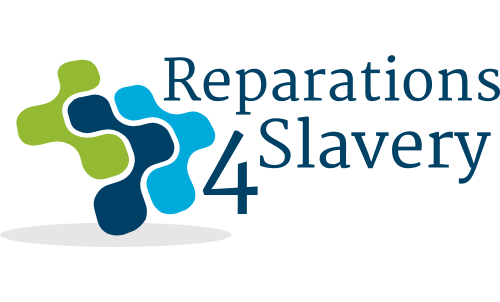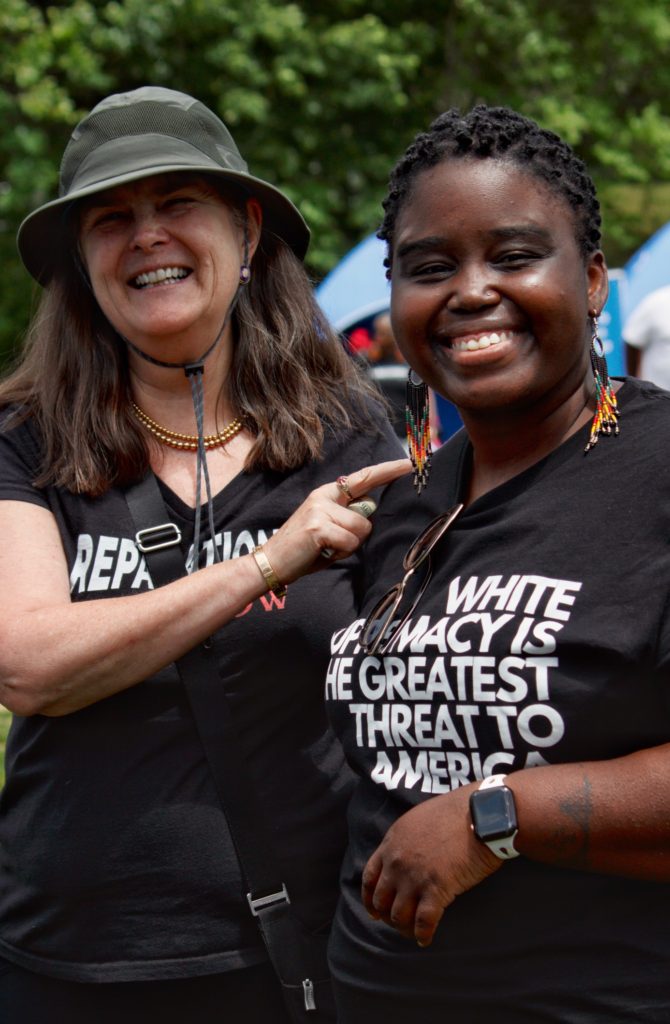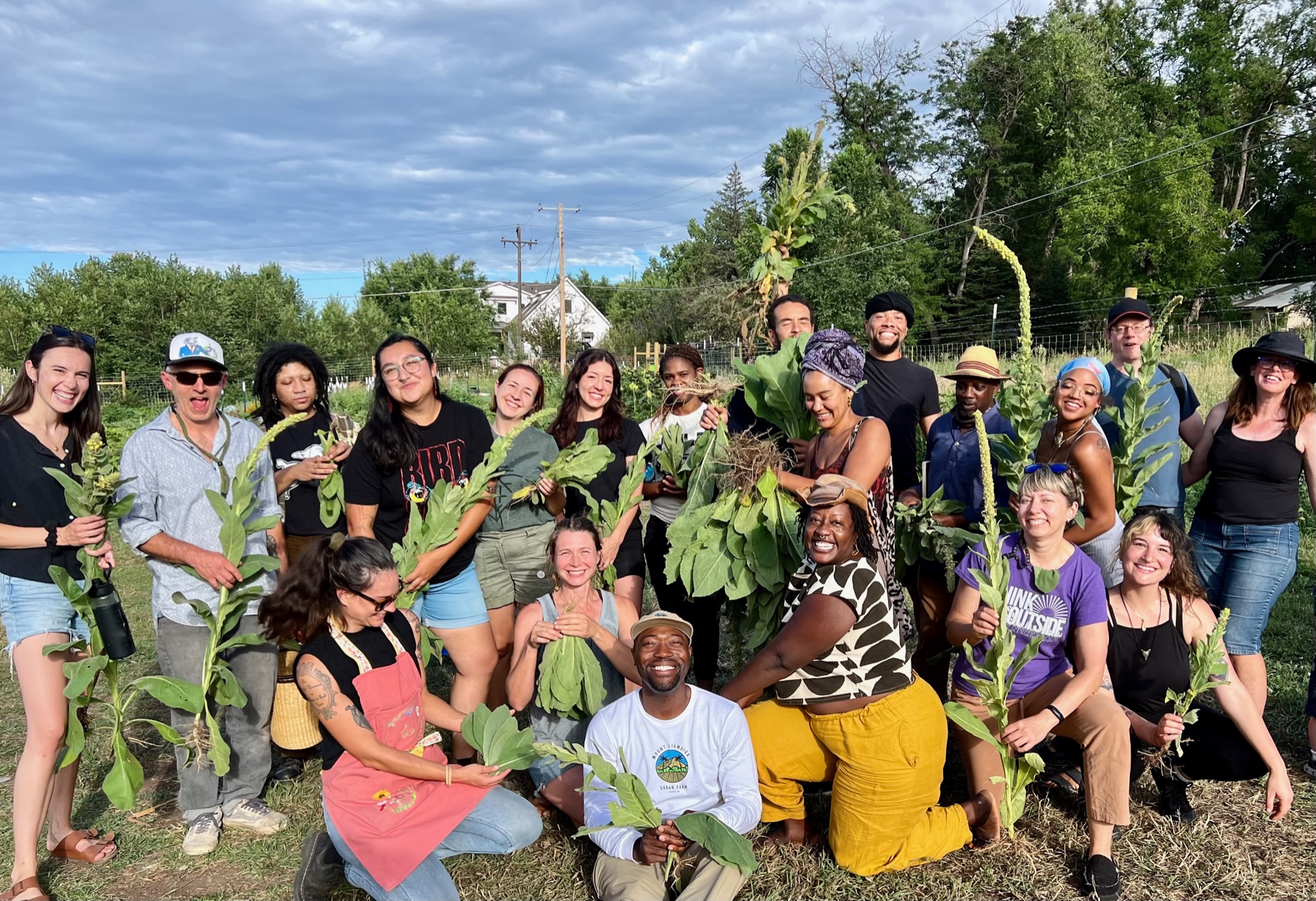Interview with Lotte Lieb Dula
Lotte Lieb Dula
After discovering that she was a descendant of slaveholders, Lotte Lieb Dula, retired financial strategist, founded www.reparations4slavery.com, a portal for white families walking the path of racial healing through engaging in direct repair. Lotte is a founding donor of Reparations Circle Denver.
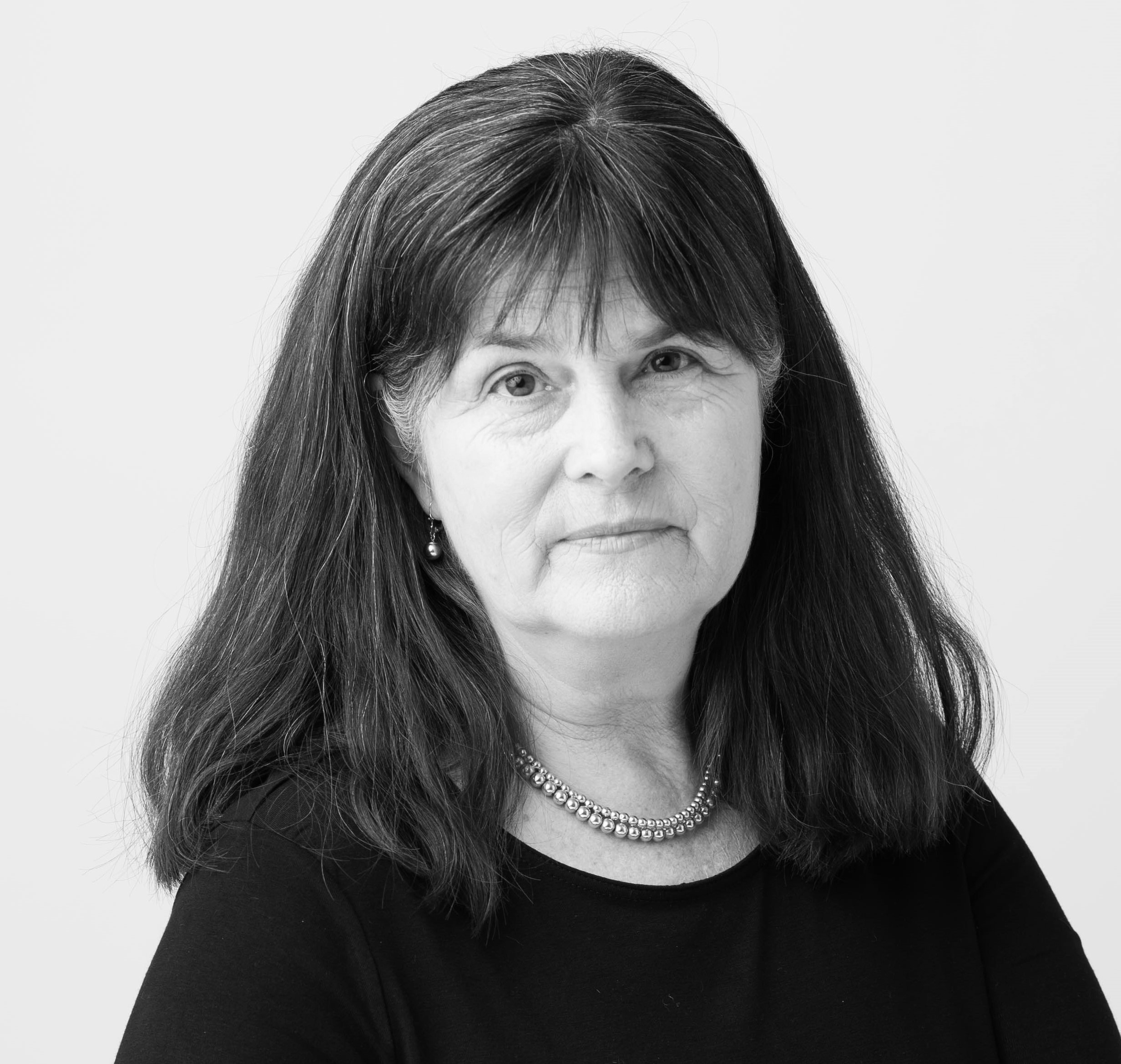
R4S: Recently, you were filmed as part of a documentary on reparations. Tell us about your experience.
LLD: Yes, we were honored to be part of a documentary directed and produced by Yoruba Richen. One of the locations we shot at was Trinity United Methodist Church in Denver. Briayna and I did our signature lecture, The Racial Wealth Gap: Understanding the Economic Basis for Repair. We incorporate our ancestral stories as the backdrop for how the racial wealth gap came to be. What makes our story so compelling is that we take apart the mechanics of how the racial wealth gap works, showing how my family achieved economic gain and Briayna's family struggled to stay afloat, era by era.
Our goal? We want to open doors.
- Lotte Lieb Dula

Now, Trinity’s pastor was initially nervous; he wasn't sure how the members of his congregation would respond. He is a Black pastor, and his congregation is all white. They had recently lost their racial equity staff member and were a little bit adrift in trying to figure out how to fit into this programming, so they were willing to take a chance to present our program. Luckily, people responded well. So that, in turn, gives me hope that we're on the right track.
I always say I need to live for 400 years to unwind the 400 years of harm my family has perpetrated, and that feels very real to me. We're looking at a multi-generational engagement in reparation - but giving a faith leader that kind of hope really deepened my commitment to this work. The white people in the audience were not only able to hear the message but were also able to say, “Yes, I support this work.” The pastor had never had that kind of conversation before with his congregation. So, it opened the door. And that's our goal: we want to open currently locked doors.
R4S: Can you give me an example of how people in your audience typically respond?
LLD: Over the two-plus years we've been doing this presentation, people write in and say that they had never really understood how the racial wealth gap worked, or exactly what the bootstrap argument was. We give white people a template for how to begin to identify and then chisel out certain parts of the system, to begin to pull it apart and to begin and unwind the harm our families have caused. Most people find the whole topic of repair to be just too big. “Where would I even start? I don't know what to do.” We are mapmakers; we have charted a path that other people can follow.
R4S: So, the first step, though, is this aha moment, this understanding of how our economic system has worked to propel white people to the top?
LLD: Exactly. I have two favorite types of attendees: fiscal conservatives who have no interest in racial justice and racial justice stalwarts who think they are totally knowledgeable about anti-Black racism. Both groups have one thing in common – they typically oppose reparations. Yet, their jaws are dropping by the end of the lecture. And people say, “Never in a million years would I guess that you could convince me that reparations are due. And I find myself compelled to really think about this deeply.” I've also had comments from people who were racial justice warriors for many years, saying, “I've been fighting for racial justice forever. And yet, so much of your lecture, I didn't know this history. And I realized that my understanding is very narrow and shallow, and I've really got to deepen my understanding of history to do this work properly.”
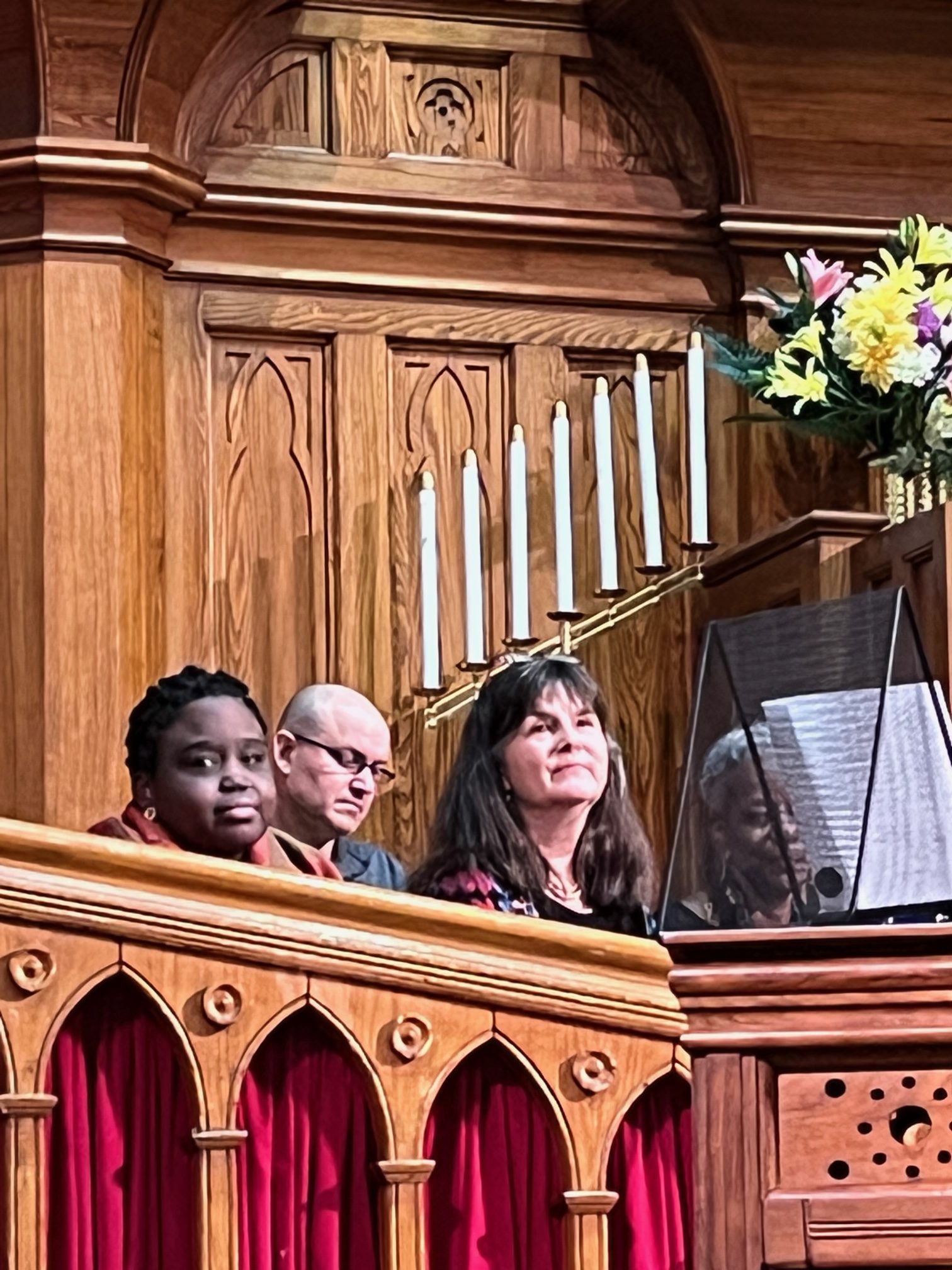
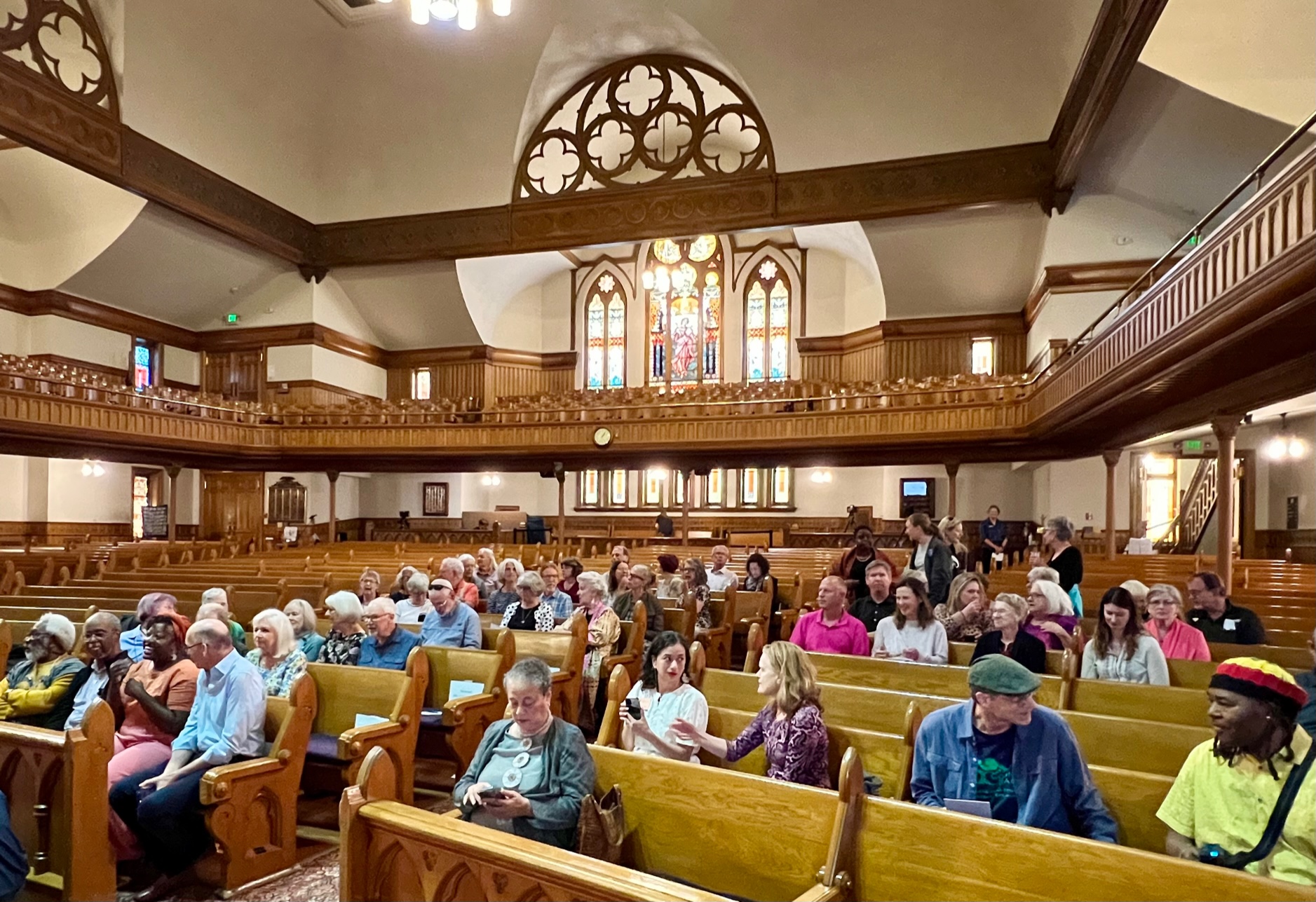
R4S: So why are those two your favorite audiences?
LLD: Because each group comes in thinking they already know and then discovers that they don't know. That's where we want people to be, in a place of unknowing and openness. It works because Briayna and I are just telling our family stories, and we’re not hammering anybody over the head with a manifesto. I am a long-term fiscal conservative, so I can speak that language. And I really understand the thinking because that was my thinking for 40+ years. I still find myself waking up and having a certain type of thought and having to remind myself that that's old thinking for me; I need to really update that attitude. So, it's an ongoing exercise to retrain yourself to think in a new way.
R4S: What do you want these people to do after having attended your presentation?
LLD: We are planting seeds of change. Seeds germinate at different rates. A small subset of people will take this charge and realize immediately that they need to engage in repair. We have a two-year path set up for these people. Phase one is reparative genealogy. We say: if you don't know who you are, who your ancestors were in American history, you can't really engage in racial justice because you don't know about the harm your own family has perpetrated. To be effective this work must be more than just intellectual. To be a true advocate for change, you must have a gut understanding at the family level as to what has happened. So, you need to study your personal ancestral history. None of us know how our family history connects to the history of racial oppression in this country. So, we get people to go down the parallel path of reparative genealogy and study the nature of the racial wealth gap. Our lecture is the opening salvo.
After about two years, if you've studied this history, you will invariably come to say that some sort of reparation is due to the harmed parties. And once you figure out how your family fits in, you can commit to working for change, unwinding harm:
“Alright, I am ready to engage in repair myself. Here are the historic harms that my own family perpetrated. Here's how that harm manifests in society today. I'm going to work within my community to begin to unwind those harms.”
Now it’s not that simple, but anyone can take steps to unwind historic harm. I'll give you an example from my own family. My mother belonged to the United Daughters of the Confederacy, a lineage-based group that has worked to ensure that the history of slavery has been erased from our textbooks and replaced with Lost Cause mythology. So, a very whitewashed version of the Civil War. They've also put up all these Confederate Civil War monuments. So, it occurred to me that to unwind that harm – the harm of erasure of history - I could daylight this history on my website and add a reparations lens. Now, does this unwind all the historical harm that has happened? Of course not, but it gives each family a place to begin the work and a way to engage that is deeply personal and inspiring to others.
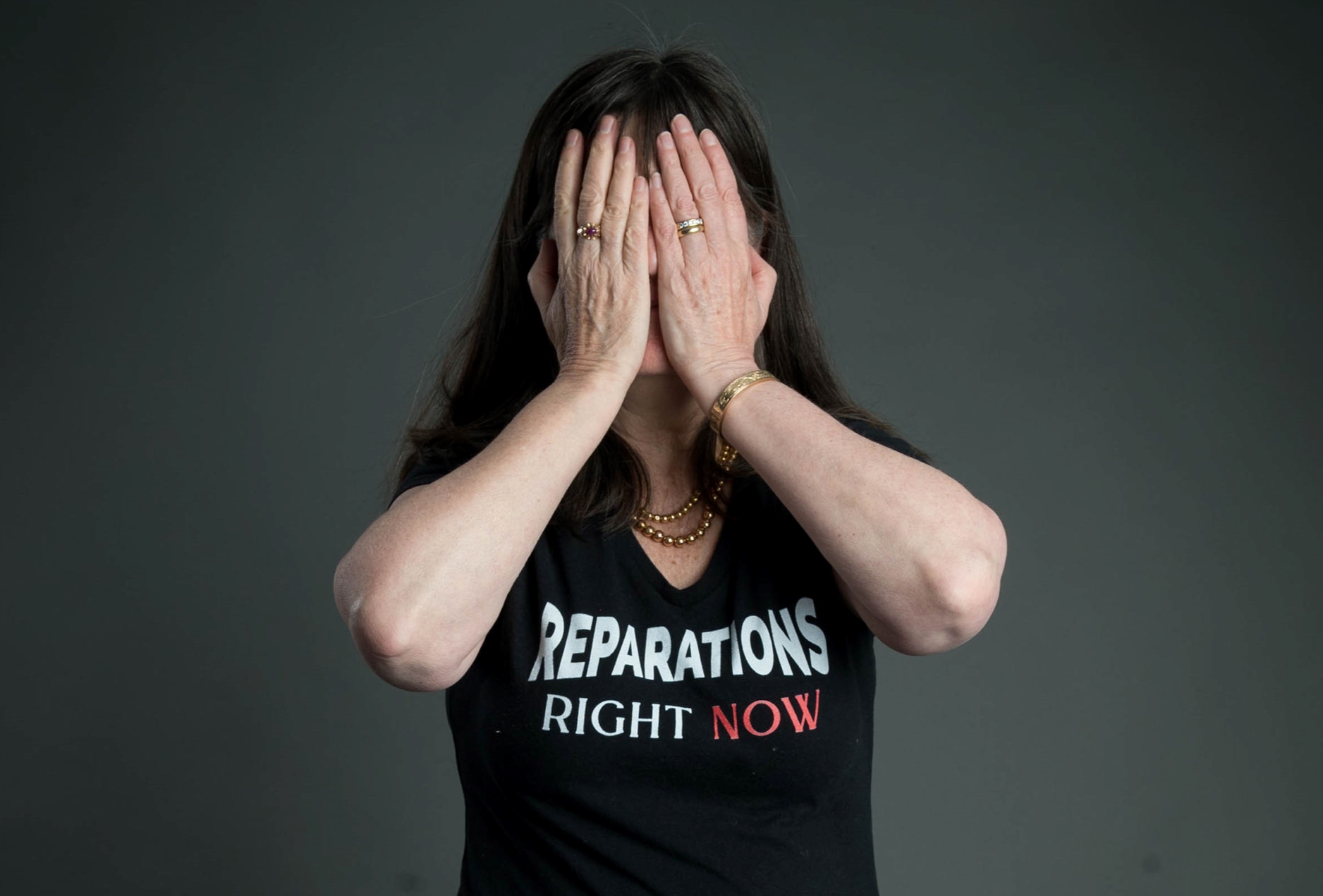
R4S: Let's go to your story. Tell us about the history of slaveholding in your family, including what you discovered about your grandmother.
LLD: My story starts when my mother died in 2015, not that many years ago. I come from a family of hoarders, and I spent most of my life moving a bunch of boxes of family ephemera around – from the basement to the rafters, to the storage locker, and back!
By the end of 2017, I volunteered to take the infamous boxes and go through them. So, I chose the nastiest-looking box to start with. I opened it, and found it was a box of my grandfather's things. He died in 1943 - I'd never met him. He was a beloved judge. This box was packed up probably around in the mid-40s. So, I get to the middle of this box, and there's this little black book.
R4S: How did it affect your feelings of connection to your grandfather? Initially, when do you find these things?
LLD: I felt very connected to him. My family saved everything. I found his notes. He was trying to coach my mother to play better tennis. I discovered that he'd put together an entire binder that was indexed and cross-referenced with tips for her. And I looked and I thought, “I know that she would have hated this!” But that's exactly what I would have done. So, I realized I had inherited many personal characteristics from my grandfather. I was kind of stunned by that. This is a man who was born in 1883 and died in 1943 at age 60. And I have a very similar personality.
I'm noting these things as I'm going through his things, and then I find this little black book. And I’m paging through the book and noticing the perfect penmanship, all the neat rows of figures, and I'm wondering who kept these records – well, it was my grandfather's grandfather. So that's my second great-grandfather. And I'm noticing that they were both attorneys. My grandfather was an attorney, and his grandfather was also an attorney. And so, I'm feeling a great sense of kinship. I can write contracts; I can write legal contracts without any training. Financial skills have also come down to me.
I'm going through this book, and I'm seeing neat rows of figures, a perfect business ledger, and gradually, I'm realizing, these are farm records. There are all kinds of farm implements, tools, all these lists of things. And I see an inventory that lists bales of cotton. I start getting nervous. I see that this farm is in Mississippi, and then… there it is. Pages 27 through 30. Loss of slaves by war 1861 through 1865. There is a list of the names of people my family had enslaved. I realize this is a ledger of property damaged or destroyed during the Civil War. And looking back, I believe this was a ledger that my 2nd great-grandfather planned to submit to the state of Mississippi to compensate him for his losses. He was asking for reparations. So, I even have a historical connection to the reparations movement.
R4S: Okay, what are you feeling as you are paging through this ledger? First, did you know you had Mississippi roots in your family?
LLD: I didn't know anything. In California, I went to school and read only one paragraph about slavery. So, I never studied any of that. I never had an interest in racial justice, either. I lived in an all-white neighborhood. My mother had spoken about a relative having fought the Civil War, but honestly, I didn't really think about what that meant.
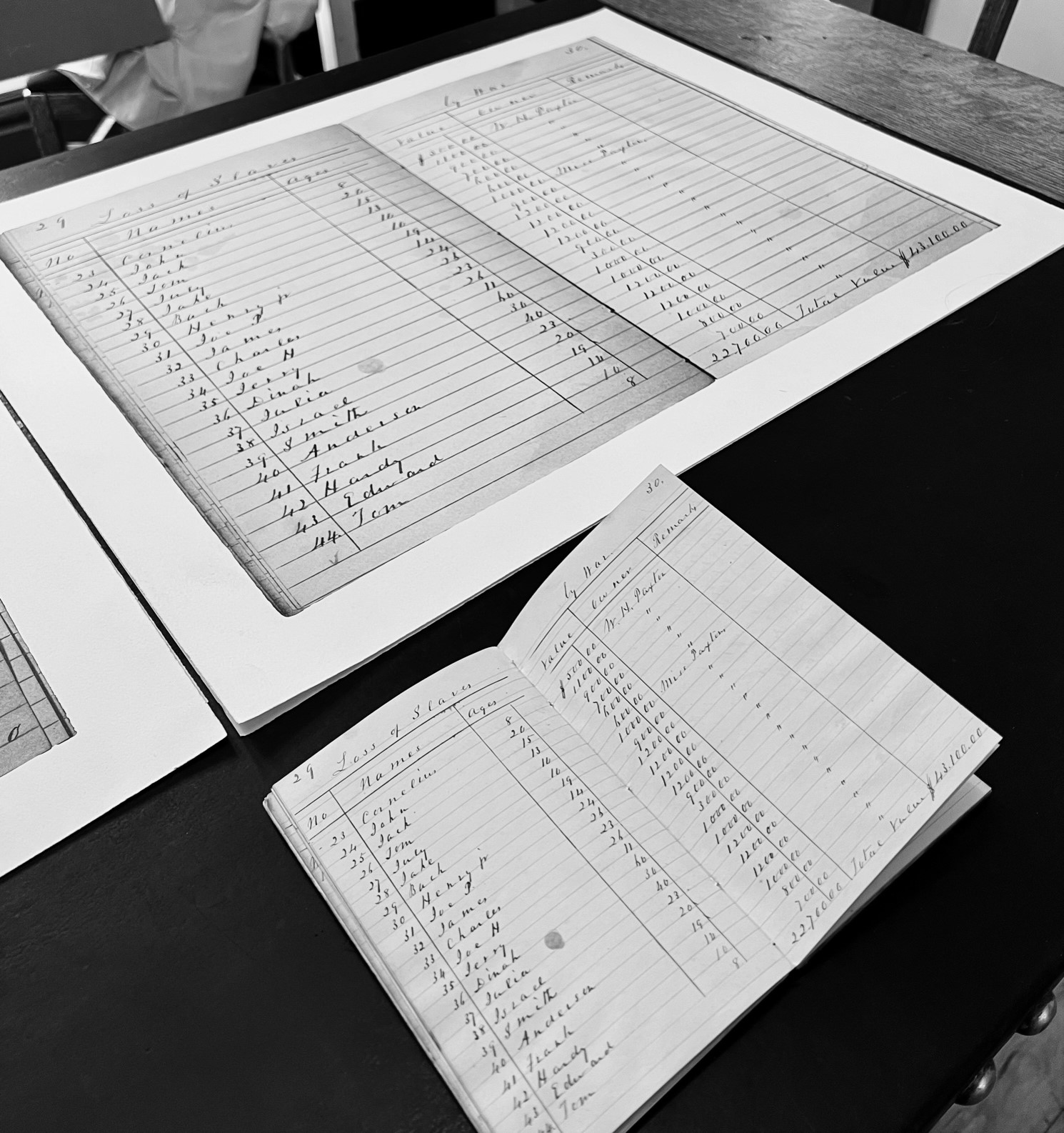
Once I realized that there was slavery in our family history, suddenly, a whole bunch of other facts came into focus. And I realized I’d been ignoring that part of my family was from the South. And those ancestors who fought in the Civil War? They were Confederate soldiers. And these ancestors were slaveholders.
R4S: As you went through this ledger, you started to see bales of cotton. Why do you think you were feeling nervous?
LLD: I believe I was feeling the full weight of history settling upon me. I make decisions quickly once I've checked the facts on something, so I knew that my life would change utterly. I called my sister and said, “Look, I found this document. Our history is not what we think it is. And I believe our family probably owes some sort of reparations. I don't know what it means. I don't know what I'm going to do. But I'm letting you know this is a path that I must go down.”
R4S: And how did your sister respond?
LLD: She was quiet at first and then finally just said, “Thank you. Thank you for working to restore honor to our family. thank you for doing this work.”
R4S: How do you deal with guilt and shame? How does this work affect your mental and physical health?
The goal is to transform guilt and shame into reparative action. Easier said than done of course.
I work with a couple of different groups of white reparationists, who are also feeling these effects and need to ask, “How do we move forward? How do we continue for the long term without making ourselves sick?” And so that's an ongoing discussion. These things just keep you awake at night, honestly. Once you start working on researching your own family history, 1860 does not seem so very distant. Time has this funny way of telescoping when you begin this work. You see the throughline of history, how the oppressions of the past express themselves today, and you just think well, today is yesterday. There's really no distinction. And so, there's a daily reckoning.
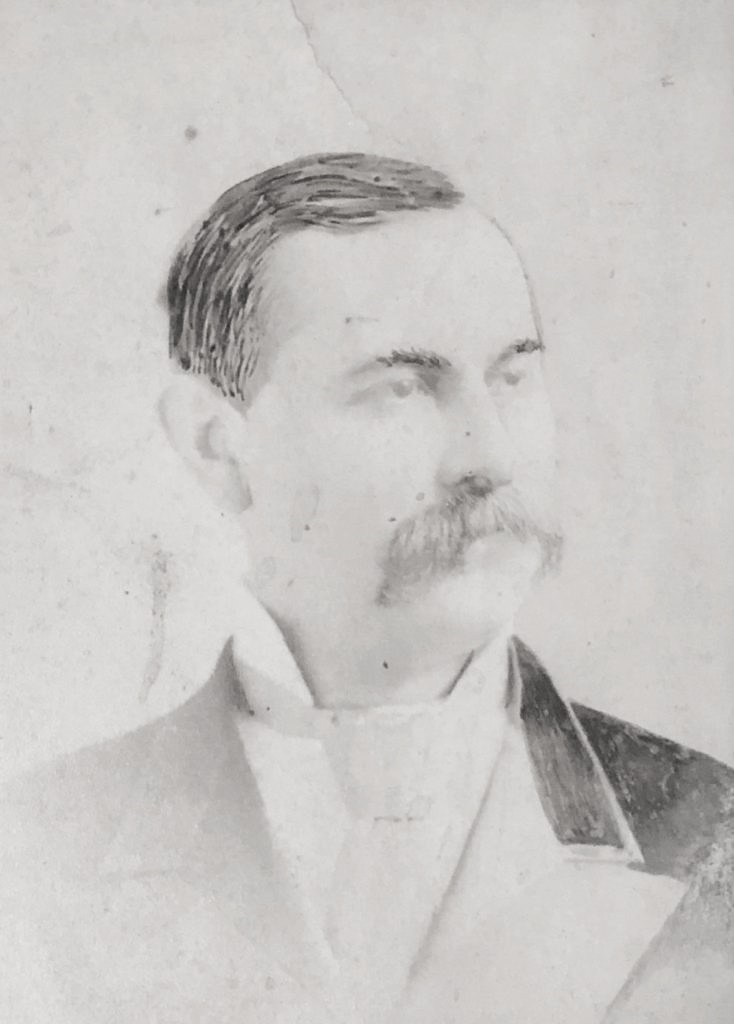
Now, I'm not personally responsible for my ancestors’ actions. And yet I've inherited so many characteristics of my ancestors, that I can’t help feeling that the throughline of history is embedded in my flesh. And it can become very depressing. There are some days when it seems like we're walking backward. The work is very difficult.
And I just think to myself, well, I have one line of Quaker abolitionists on my father's side, thank goodness. They probably realized that change would not happen within their lifetimes. Yet they kept walking toward freedom. So, when I'm having a dark moment, I think of the suffering of the people my family enslaved and the unending work my abolitionist ancestors engaged in to lift myself back up. My suffering is nothing compared to theirs.
R4S: And how do you counsel others whom you're shepherding through this process, knowing full well the price that you pay for this knowledge and this course of action?
LLD: Keep moving. Don't focus solely on doing the research. Don’t dither, decide. Let's say you can only research back as far as your grandmother, and your grandmother was a teacher, and you have discovered that she grew up in Kansas. You look at Jim Crow laws and how segregation affected that community in Kansas. You look at what's happening today, and you realize harm is still happening, there is harm to account for – and an opportunity. There are Black-led education organizations already working to right these wrongs; you can fund their work or take part in fulfilling their needs somehow. You can create short-range, medium-range, or long-range plans of repair that reflect your family history and create value in that community. It's something that you can speak about, reparative work you can form relationships around. It's concrete, simple. You want a simple story about why you're engaging in repair. It shouldn't be some intellectual thing. Your story should come from the heart and should relate to your family history. You should find a way to connect through the heart to people that you're working with, who understand your story.
R4S: So, extrapolating from that, do you see the R4S portal as part of your direct repair?
LLD: Absolutely. You know, Bri and I were giving a presentation a while back and the group that was hosting let us know that there would be another presenter before us. We were really annoyed, ha! So, this person came on and immediately said, “ I am here to make reparations. I want to tell everybody about this website, reparations4slavery.com. I went on there, and it shows you how to determine what you're going to do toward repair, and I followed the program. And I'm presenting a check for $30,000 to your organization because I've done this analysis of my genealogy. Here is what I found, and I've decided that I owe repair in your region. I've chosen your organization to receive it because you're doing the work that I think is the most healing. Here’s your check. Bri and I were stunned. But we also know this is happening all the time – white families use our site and engage in direct repair like this.
R4S: Where have you had to stretch the most in this work? What has surprised you?
LLD: You know, I'm on the autism spectrum, and I don't build friendships easily. I prefer to work on projects with people. Luckily, Briayna’s the same way; she is focused on projects and less on people. We have that in common, so that works well. But with Asia, I'm learning the beauty of relating without a task list or agenda. She is much more heart focused. Her heart is so big; she just floods me with love. And I'm sort of melting in her presence, you know. Asia and Bri are so different. But they represent the same opportunity to be in a reparative relationship.
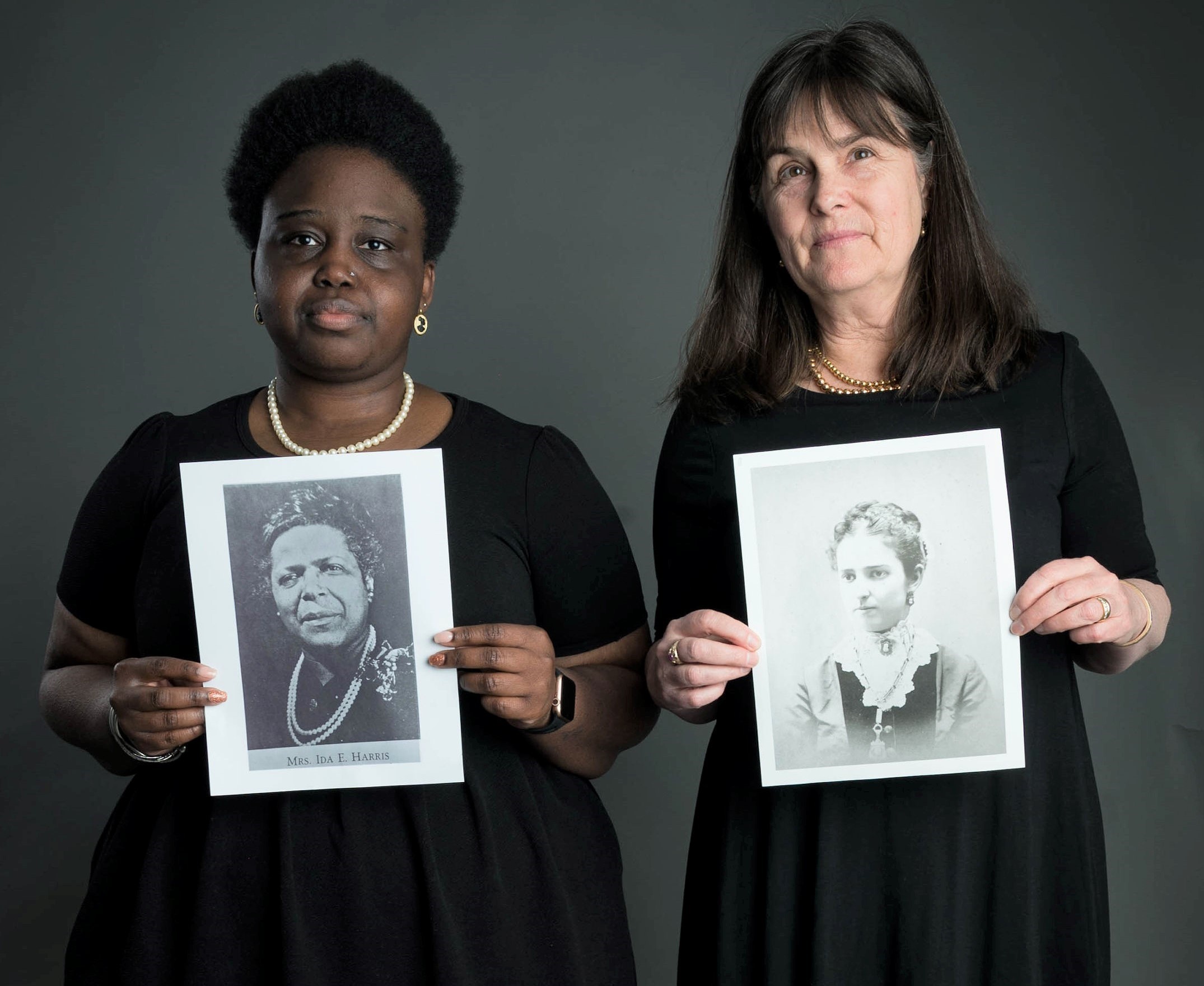
Another thing that is surprising and deeply embarrassing is that I get triggered a lot doing this work. For instance, I did not come from a loving family. My family experienced a lot of trauma. Generation after generation of trauma passed down and never healed. And not a lot of love. And what triggers me is seeing how much love there is in these Black families. When I started this work, I naively thought, “I'm the person who has the wealth here. They've got stuff to gain from me. I've got nothing to gain from them.” Oh my god. It's the opposite. I’ve got nothing, and they've got what counts. They have community. They have family; there is support there. There are family traditions; there's family culture. There's warmth; the concept of family extends to everyone. My family? It was all about collecting trinkets – tokens instead of love. And yet, I thought I was the one who had something worth giving. It’s the opposite.
We're gonna end this conversation today with your vision. And that's a vision where this portal isn't needed anymore.
LLD: The day the portal is no longer needed? The racial wealth gap has been eclipsed. When I walk out of my house, I see happy people of all descriptions living with equal access to whatever we need. Our society has changed. We are no longer focused on capital markets; we’re focused on human wellness and potential, in all its facets.
And so, if that transition has happened, then my portal looks quaint! Remember when we had all the troubles? Aren't we glad that we saved our society? I mean, that sounds like pie in the sky today. It's hard for me to imagine a day when the materials on the portal are no longer needed in today's environment. However, I think of my Quaker ancestors who were abolitionists. They didn't achieve their goals in their lifetime. Yet they kept marching because there was that vision of the future. So yes, that is my vision of the repaired future. The best way to chart the course is to hold that vision in your heart and to let that inform your next steps. That's quite a gift. Thank you!
